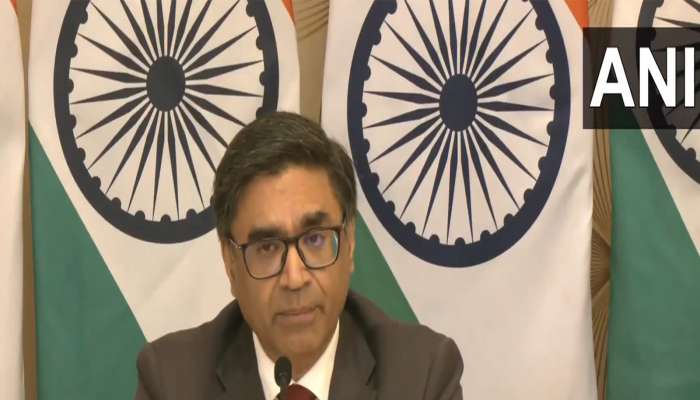
New Delhi: The recent state visit of Mauritius Prime Minister Dr. Navinchandra Ramgoolam to India marked a significant milestone in the bilateral relationship, reinforcing deep-rooted partnerships and delivering a host of positive outcomes across strategic, developmental, and cultural spheres.
The talks between the two sides were broad-ranging, covering not just ongoing bilateral priorities but also regional and global concerns. The leaders emphasized the “family bond” between the countries, rooted in shared history, values, and extensive people-to-people ties. Mauritius was lauded as a key partner in India's 'Neighborhood First' policy and Vision MAHASAGAR, underscoring the importance of Indian Ocean maritime cooperation.
Both delegations highlighted the elevation of their relationship to an “Enhanced Strategic Partnership,” announced during a previous high-level meeting. The visit, which saw Dr. Ramgoolam calling on India's President and Prime Minister, included events in Kashi (Varanasi), Mumbai, Ayodhya, and Tirupati—reflecting cultural, economic, and spiritual connections.
Special Economic Package: A Transformational Initiative
Central to the visit was the announcement of a comprehensive Special Economic Package worth USD 680 million. This package aims to strengthen Mauritius’s key infrastructure, healthcare, education, energy, and maritime security, blending grants and lines of credit for impactful delivery.India on Thursday announced a Special Economic Package for Mauritius worth nearly USD 680 million (MUR 30 billion) across health, infrastructure, and maritime security sectors during the current state visit of Prime Minister Navinchandra Ramgoolam to India.
The package includes a range of projects designed to enhance bilateral cooperation between the two countries.
Adressing the special briefing by Foreign Secretary Vikram Misri on Mauritius PM Navin Ramgoolam's India visit, he said, "One of the major outcomes of this visit is our decision to offer a special economic package to Mauritius."
“This covers multiple elements, including development of the port of Port Louis, development and assistance for surveillance of the Chagos Marine Protected area, blended financial assistance in the form of grants and a line of credit for major projects,” he added.
The announcement comes after fruitful discussions between Prime Minister Narendra Modi and Mauritian PM Ramgoolam on a wide range of bilateral matters.
According to the Prime Minister's office, "On the basis of requests submitted by the Government of Mauritius, the following projects have been agreed, in principle, to be jointly implemented by India and Mauritius."
Under the special economic package, the two countries have agreed to a series of important projects. These include the construction of the New Sir Seewoosagur Ramgoolam National Hospital, the establishment of an AYUSH Center of Excellence, a Veterinary School and Animal Hospital, and the provision of helicopters for Mauritius. The total estimated cost of these projects and assistance is around USD 215 million (approximately MUR 9.80 billion).
Additionally, projects such as the completion of the new ATC tower at SSR International Airport, the development of Motorway M4, the development of the Ring Road Phase II and the acquisition of port equipment by CHCL will be undertaken under a grant-cum-LOC basis. The estimated cost for these initiatives stands at USD 440 million (MUR 20.10 billion).
On the strategic front, India and Mauritius have also agreed to cooperate on the redevelopment and restructuring of the Port in Mauritius. Moreover, the two nations will cooperate on the development and monitoring of the Chagos Marine Protected Area, a project of significant environmental importance.
In addition to these, the Indian government has committed to providing a budgetary assistance of USD 25 million for the current financial year to support ongoing initiatives and bilateral projects.
Earlier in the day, PM Modi and his Mauritian counterpart addressed a joint press briefing in Varanasi, where they signed off on multiple agreements.
The two leaders, ahead of their joint press briefing in Varanasi, held wide-ranging discussions covering bilateral, regional, and global issues, culminating in the signing of seven Memorandums of Understanding (MoUs) across diverse sectors, including science and technology, oceanography, public administration, power, small development projects, hydrography, and space cooperation.
Key agreements included a space collaboration deal for the establishment of telemetry, tracking, and communication stations, and a renewed commitment to maritime research and hydrographic mapping.
In the education sector, MoUs were also announced between the Indian Institute of Technology, Madras and the University of Mauritius, as well as between the Indian Institute of Plantation Management, Bengaluru and the University of Mauritius.
Prime Minister Ramgoolam expressed deep appreciation for India's role in Mauritius's progress, highlighting that the bilateral relationship is now rooted not only in historical ties but also in shared values, mutual respect, and a forward-looking development agenda.
PM Ramgoolam had earlier visited India in May 2014 as the only non-SAARC leader invited to attend the swearing-in ceremony of the Prime Minister and the Council of Ministers.